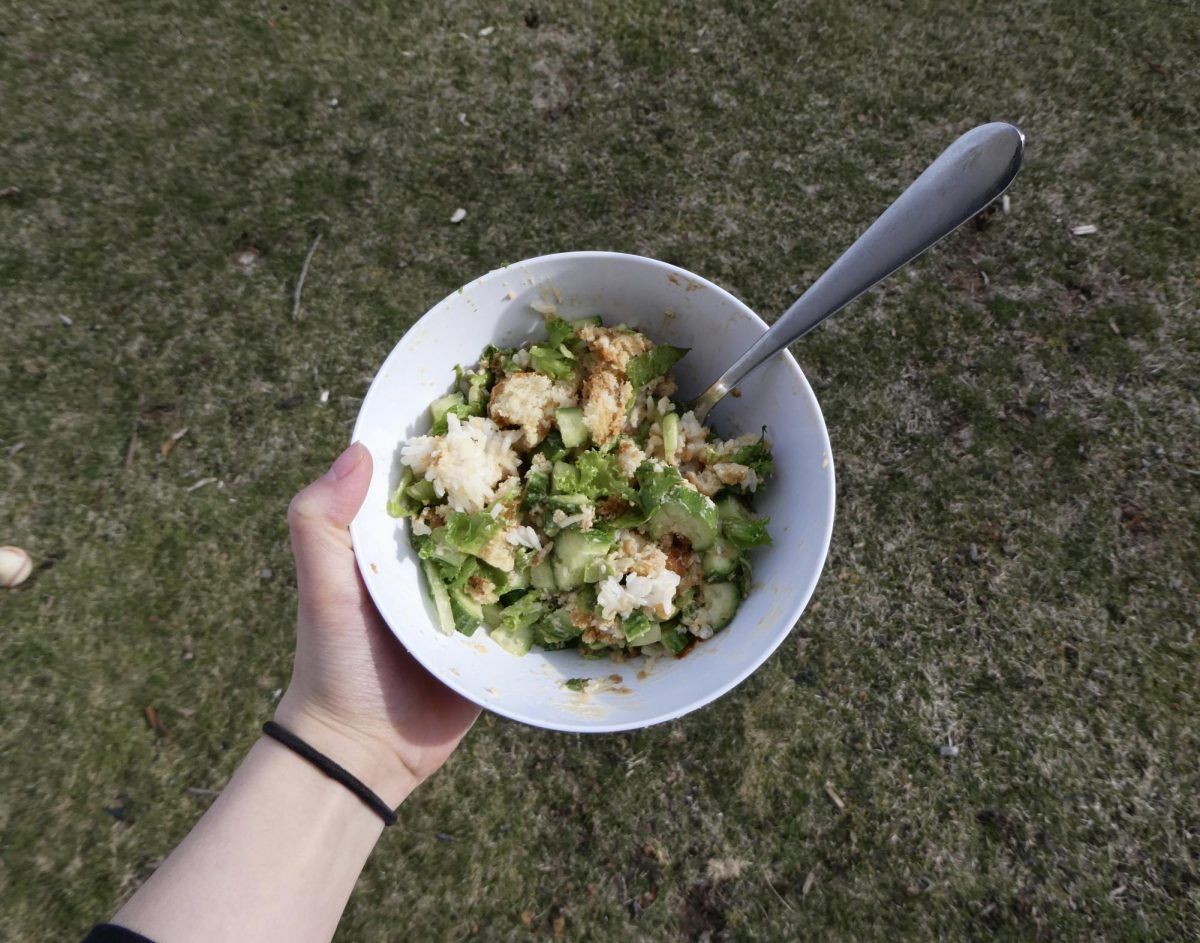Veganism is a controversial idea that evokes many different thoughts and feelings. Veganism is the practice of refraining from eating and using any animal products, including meat, eggs and dairy. Often, veganism is seen as an infeasible and philosophical proposition. When executed properly, however, it can be an ethical choice and a form of activism to mitigate animal exploitation and environmental damage.
Many misconceptions surrounding veganism deter people from adopting the practice: many think that it is deficient in certain nutrients, consists only of vegetables or always must be “healthy.” Boston Latin School science teacher Ms. Jennifer Dorcy argues, “The first stereotype [about] vegans is that all they eat is rabbit food; the second stereotype is that they are weak; […] another is that their diet is inherently healthy. Oreos and Coke are vegan — [but] not healthy foods.”
The nutrients found in meat and animal products can be replaced with vegetables and fruits in the form of fortified foods. In the modern world, there are many alternatives to supplement limited options and give vegans the same feeling as eating real products.
A vegan diet boasts many health benefits. Studies by Britannica show that people on a vegan diet can still consume the necessary nutrients to stay healthy, while also preventing Type 2 diabetes and lowering the risk of developing heart disease and certain cancers. Ms. Dorcy remarks, “A wholefood, plant-based diet has greatly impacted how I have aged. I am healthier […] than I was in my teens, I am full of energy and the aging process has definitely been kinder to me.” These combined factors make veganism a highly worthwhile transition.
Surprisingly, many foods are still vegan-friendly, meaning that a diet does not have to be limited to so-called “healthy” foods. Common vegan snacks include potato chips, like some flavors of Lays and Pringles, and sugary candies, like Fruit by the Foot. These items are all made with non-animal products, so they are classified as “vegan.” Urvashi Maharaj (V) remarks, “There are junk foods that are vegan, meaning that veganism does not necessarily have to always be healthy.”
People can decide to become vegan for numerous reasons. The most well-known reason is to save animals and the environment. Currently, the Food and Agriculture Organization of the United Nations estimates that the livestock industry produces 11.1 percent of all global greenhouse gas emissions, adding significantly to worldwide pollution. Many organizations have also touched upon the horrific conditions that farm animals face, such as being cruelly confined in filthy crates, cages or pens..
Going vegan would highlight people’s discontent for these conditions and help enforce boycotts on unethical production practices. Research conducted by The Guardian has reported that vegan diets resulted in 75 percent less climate-heating emissions, water pollution and land use than diets in which more than 100 grams of meat were eaten daily. Vegan diets also contributed to cutting the destruction of wildlife by 66 percent and water use by 54 percent.
Social media has become a recent compelling source of inspiration for people to become vegan. Various online platforms like Instagram have become part of everyone’s daily lives, creating virtual communities for people to post and share images of their food and activities, which can promote their diets to a wide audience, potentially causing some to convert to veganism.
Although many argue that online efforts to encourage vegan diets seem too aggressive or extreme, social media can aid in highlighting evidence of cruelty against animals and the environment. Winnie Chen (IV) comments, “In general, social media can always be used to promote, uplift and encourage but also pressure peers to do something. I think most online videos of veganism are pretty educational and don’t extremely push anyone.”
Now, a vegan diet is much more accessible and flexible than in previous years, due to the availability of a wide variety of vegan foods. The environmental benefits of veganism have also soared immensely, thus allowing humans to give back to their natural world. These combined factors make veganism a highly worthwhile transition.








